The country is facing a great opportunity, but also a challenge at the same time, as the Recovery Fund has been added to the traditional financial tools, such as the Public Investment Programme, the NSRF and the European programmes. The projects that will be launched from all these sources will bring us face to face with an enormous change. It is the biggest challenge and perhaps the country’s last chance to transition into a modern state for the benefit of citizens.
In the last two years, Information Society proceeded to conclude over 70 programme agreements amounting to over 2.5 billion euro, while it already has 50 contracted projects amounting to 600 million euro. In fact, it is expected that approximately 40 project tenders with a total budget of almost 465 million euro will be launched in the coming months. The challenge becomes greater if we take into account projects amounting additionally to approx. 2.1 billion euro, which the company has already undertaken from the Recovery Fund. Undoubtedly, it is an unprecedented number of projects, never before reached in the IT and telecommunications sector and in such a short period of time.
At Information Society, we understand the enormous challenge before us and we are in daily communication both with the Ministry of Digital Governance, as well as with the IT and Telecommunications companies, in order for us all to be able to work together in good faith and efficiently, so as to achieve the timely and optimal implementation of all the above projects, as well as all the Digital Transformation Bible and Recovery Fund projects planned and assigned to us.
This is, beyond any doubt, a unique opportunity for structural change in the institutional background of public administration, and if it is achieved, it will significantly boost the growth of the national economy, the development of jobs and the well-being of society.
There are many challenges. It is certain that, in order to achieve results and taking into account the particularly tight time constraints we have, the strategy for managing the resources of the Recovery Fund requires a new approach for the management of the life cycle of digital transformation projects, as well as drastic improvements in the institutional framework and the implementation mechanisms. We must adopt new practices and define the framework for the implementation of such important projects for the country, with modern terms and flexibility, both on the side of the State as well as on the side of the market and businesses.
Human resources act as a catalyst in project implementation. The wider lack of employees in the market, but also the interventions required in order to reduce the multi-month procedures that are necessary for the recruitment of employees in Public Administration, is one of the most important challenges that must be considered by the political leadership and the bodies, so as to find joint solutions.
On our end at Information Society, in order to effectively proceed with the implementation of the projects we have undertaken, we have already secured specialized collaborations and agreements with consultants from the market. We reinforced our human resources and we have now reached 140 employees, along with partners. Soon, another 20 will be added through the process we initiated via the Supreme Council for Civil Personnel Selection (ASEP), compared to just 52 that were left in the company after the crisis; we have drawn up a five-year strategic plan and upgraded the company’s logistics infrastructure and processes, which are one of the company’s great assets.
However, the formalism of the Public Administration, the lack of evaluation and incentives in many services and agencies, the environment of suspicion and the opportunities for developing skills in the Public Administration sector have a direct impact on the timely recruitment of employees and, therefore, on how public projects are implemented. We need to address and solve such structural problems that exist in the culture and the processes for attracting human resources and, at the same time, we need to enhance the conditions for the continuous development of their skills.
For this reason, we collaborate daily with the Ministry of Digital Governance, as this is necessary to immediately move towards a direction that will allow us to simplify procedures and mechanisms in a fair and transparent manner that will mobilize the human resources required, within the time and with the quality required.
Stavros Asthenidis, CEO of “Information Society”
First publication: www.powergame.gr/apopsis/155964/i-ellada-tou-avrio-schediazetai-simera/










